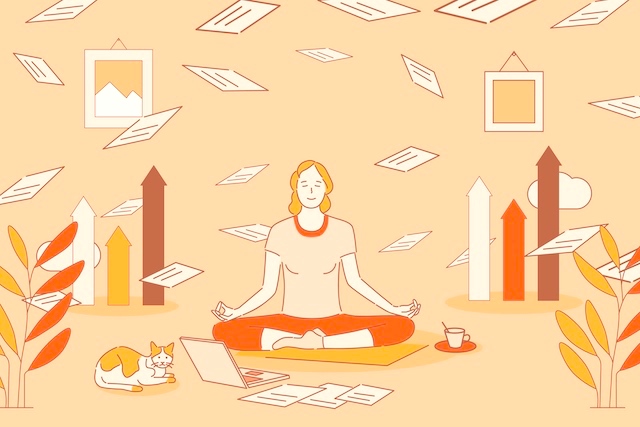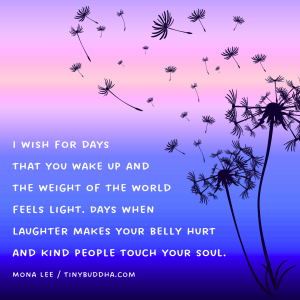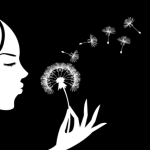
“Don’t use a lot where a little will do.” ~Proverb
One of the most common paradoxical statements we hear is “less is more.”
I, like many others, understand what that means in the context of personal style, where it is commonly used.
I can appreciate, for example, that when we overdress, we are often taking away from the beauty of the outfit or the look and detracting attention from each valuable detail or accessory.
But recently I discovered that the paradox of “less is more” has many other applications.
When I started questioning whether I could apply this simple philosophy to my life, more generally—to be more effective, to be more at peace, to have higher levels of self-esteem—I found that it became the single most effective guiding principle of my life.
The first time I noticed the amazing power of “less is more” was when I accepted that I could not physically do the brutal corporate hours that I used to work, and neither could I compete with the hyper-alpha entrepreneurs and business owners that worked fourteen hours a day.
I tried to do the 5am starts that seem to be the trend in the world of business but found that is not how my body works. Every time I tried to push myself beyond my natural rhythm, I was so tired during the day, I could achieve nothing of value.
That is when I made a new rule, that I would do just one thing every day, and as long as I achieved that one thing, my most important, value-added thing, I would appreciate myself as having achieved something significant.
I appreciate that this is not always possible when you are not in charge of your own workload, but the essence of this lesson is to concentrate your focus on what is essential and of highest priority and value, rather than becoming overwhelmed with trying to do every task.
I found that when you apply “less is more” to your work and daily to-do list, you become the epitome of productivity and focus. And although there is a certain tribe of people that glamorize the hustle culture and the grind ethic, we also now acknowledge that our mental health and self-care are just as important. Thankfully, we have started to realize that burn-out is counterproductive to success in the long term.
I found that by trying to do less, I actually achieved more in all the important ways. I was more creative, I was more productive, and I was able to sustain my energy throughout the week instead of constantly going through peaks and crashes.
I have now made this my routine and my ultimate measure of productivity. By focusing on the most important task, instead of aiming to complete every task, we can all achieve more by seemingly doing less. This is one way powerful we can utilize this paradox to streamline our everyday life.
After my success with applying this approach to my working life, I then started to consider whether “less is more” might help me in other parts of my life.
One arena in which I have reflected on “less is more” is when I have found myself critiquing my natural tendency to not want to speak about my accomplishments in a boastful way or try to push myself to the front to be ‘seen.’
Often, I have wondered whether my natural modesty was holding me back. Should I be pushier? Is it a failing within myself to not be more self-promoting? But then I reflected on “less is more” and realized that one of the ways we can be guided by this philosophy is in how we present ourselves to the world.
We do not need to necessarily boast about our accomplishments or clamor desperately for attention.
Sometimes we get greater appreciation and respect by allowing people to learn for themselves our true value. In allowing people to discover us, we are attracting only those who appreciate us without having to work so hard at being liked or selling to them in the manner of a pushy salesperson. And there is so much flow and peace in approaching life like this.
Think of the greats in history who changed the world and never talked about themselves, instead choosing to keep the focus on their mission and the people they served. Therein lay their greatness.
The concept of servant leadership (another seeming paradox!) speaks to the way great leaders are ones that serve, and this necessitates keeping your ego aside. This is my go-to now when I feel I should be more of a pushy salesperson or chase after people that have no interest in reciprocating my efforts. Less is more!
“Less is more” has also changed the way I communicate. I, like many other people in our modern society, have been conditioned that we should communicate, communicate, communicate! That we should talk about everything all the time and express everything we feel and think.
But I found, when reflecting on “less is more,” that in relationships, we sometimes over-communicate.
We can all do with holding our tongue and learning when not to speak, what not to say, and when to listen.
This self-control and self-restraint can often pave the way for a better quality of communication and more peace and harmony in a culture where we overemphasize the power of words spoken—words that are often unnecessary and destructive, words that cannot be taken back.
By saying less, these days I find that my relationships are more harmonious, and greater peace and ease have found their way into my interactions. It also reminded me that there are many ways we say so much when we say nothing. When we let ourselves just hold space, just be, or spend time listening, we are communicating in powerful ways.
In my family and the way I love and care for them, “less is more” has helped me realize that sometimes the best way to love and care is by taking a step back and doing nothing rather than helping out every time.
It allowed me to recognize where I was not being caring but, in fact, was being overbearing and enabling. And as many of us have discovered, the tendency to overextend yourself does no one any good; not the person you are trying to help, nor yourself.
One of the ways I used to step from caring into being overbearing was by offering ‘helpful’ but unsolicited advice to my loved ones. Now I have realized that, when it comes to offering advice, less is definitely more!
I discovered that “less is more” is about creating space. In your relationships, this is where you are not always reaching out to connect and create intimacy and you are allowing air to circulate and bring new life and perspectives to your interactions.
And this also applies to physical space. By decluttering and letting go of things I no longer use or need, I now have less but better quality items, which I really treasure. I am able to value them, (because I can actually see them!), and this results in a feeling of luxury and abundance from the sensual act of taking time to fully enjoy them, rather than being on to the next purchase after the initial thrill wears off.
And when we apply this philosophy to our schedule, by creating fewer obligations that drain us, we allow space and time to spend on what is truly important, while also creating space for new activities, that are more aligned to us, to come into our lives and take their place.
“Less is more” seems contradictory and confusing.
But the reality is, beauty lies in simplicity, truth lives in simplicity, and greatness lies in stripping yourself and your life down to what is truly important.
Here are a few questions you might ask yourself to start the process of applying this motto to your life.
- In what ways can you do, be, and have less and magnify your overall happiness, peace, and success?
- Can you find ways to reprioritize and focus on what is truly important?
- What do you do, with relative ease and effortlessness, that is adding value to your life?
- In what ways, and in which areas, are you trying too hard?
We can all reflect and apply the teachings of this paradox in any and every part of our life to live a life of greater meaning, focus, simplicity, and peace.
I encourage you to deeply reflect on how less might actually be more in your life and then take small daily actions to align to that reality. Take small daily actions to remove things, to do less, to be less, to try less, and thereby create more flow and ease and less stress.
Take small steps to create pockets of nothingness and space in order to expand into more of what is truly important and, most importantly, to expand into a greater version of yourself.
About Rita Sheth
Rita is a writer, speaker and entrepreneur. She writes and teaches on personal power, spirituality, self-esteem and self-care for women through her platform, The Many Sides, in which she also hosts a blog. She has also recently started a podcast, Straight To The Heart, a series of short listens on YouTube. Rita also runs a fashion brand, Mercury Dasha, and is a lawyer by profession.













 Though I run this site, it is not mine. It's ours. It's not about me. It's about us. Your stories and your wisdom are just as meaningful as mine.
Though I run this site, it is not mine. It's ours. It's not about me. It's about us. Your stories and your wisdom are just as meaningful as mine.